Preventative Medicine Is Hard Work But Nobody Wants To Do It
Preventive medicine is a medical specialty recognized by the American Board of Medical Specialties which focuses on the health of individuals and communities, the goal of which is to promote health and well-being and prevent disease, disability and death.
We need to change the focus of healthcare from reactive and treatment-based, to preventative medicine. Yes, yes, yes, a thousand times yes! We know this is the future, so why isn't it happening?
Lots of people say that it's the doctors' fault, that they just don't care, or that it takes too much effort that they are not willing to give. Others blame big pharma, insurance companies, big businesses in general. Without a doubt, the public is getting the short end of the stick and there is nothing they can do about it.
I'm not so sure about that. What if we thought about this situation differently? Right or wrong in this case, one must realize that it is the goal of big business to make money, and to respond to a need that society is seeking. So many of us are suffering. We are sick or injured, and we need help. That is true. I would argue however, that big pharma is swooping in to respond to those vulnerabilities and to provide solutions. Conversely, if there were no longer a demand for surgery and drugs, then doctors, big pharma, insurance companies, whomever you blame, just couldn't take advantage.
Let me you a little story about how things run in my practice. It might give some perspective on why things are the way they are. Now, obviously this is not a real patient, but I’ve seen many for whom this situation would fit.
Meet Larry. Larry is in his mid-forties, married with two children. Larry works for the government. Six months ago, he was referred to me for knee pain. He brought his MRI with him. After examining Larry and looking at his imaging, I concluded that the knee pain he was experiencing was NOT caused by any problem within the joint, but that Larry’s pain was as a result of muscular imbalance in his leg, specifically that the muscles on the outside of his thigh were stronger than the muscles on the inside of his thigh, causing his kneecap to track poorly. This is a fairly common problem that I see in a lot of people. Imbalances can happen because of previous injuries, inactivity, not doing the right exercises to balance out the body, etc.
I told Larry that he needed to do some exercises to fix his problem. I told him that he is going to have to be consistent and do what I’d recommended - exercising three to four times a week for a four to six months - before he would see any results. I told him that this was NOT going to be an easy process, and that he would likely have discomfort and even pain as he worked through things. I knew, based on his background, that this is going to be a tough road for Larry.
Adding to his problem, Larry was inactive. He worked in an office, which meant he spent a lot of time sitting. He said he exercised sometimes, but my gut feeling was that he didn't do much. For Larry then, doing any kind of physical activity was going to be extra difficult. It would've been different if he'd been an athlete or was a physically active person who was used to working through discomfort and physically difficulty on a regular basis, but he was not. As a physician, obviously I couldn't be with him every time he had to do his exercises. Even if he were to see a physio (which Larry said he could not afford), he'd still need to do the exercises a few times a week on his own. You can see where this is going, right?
Three months later, Larry came back for his follow up appointment. I asked him how things were going. He said things were going OK, that he'd been doing his exercises, sort of. He said he felt a bit better, but that he still had pain. He was SURE something was wrong. I told him again that everything would be fine but that he needed to keep doing his exercises as I’d prescribed. Good for Larry. He agreed and off he went.
Another three months went by until Larry came back. "Doc," he said, "I’m slowly getting better, slowly getting stronger, but the pain is still there. Less, mind you, but still there." Larry was frustrated. He asked if he could get another MRI or have surgery. I told him that he WAS progressing but that it was a slow process, and that anything less than full compliance - which I didn't think he was giving - would make it longer. Larry was not having it. He was angry. I acquiesced and booked him for surgery. The day of the operation, I was the one frustrated, because after I opened him up, my suspicions were validated. There was NOTHING wrong with his knee, and now he was going to have to recover from both the surgery AND from the imbalance issue he was experiencing to begin with. We were back at square one.
Now, this kind of thing happens all the time. If it’s not a knee, it’s a shoulder, or a back, or something else. Sometimes, people won’t return to see me at all after their first visit. They think I don't know what I'm talking about. They think I can’t help. The likely look for a second opinion, or for some alternative kind of treatment. But I know what will work. It’s not rocket science. It’s just that the fix will take more time and effort than they can stand.
Do I blame Larry? No. Larry is a product of our society, a society in which we are trained every moment of every day to expect instant results to our problems. Want to watch a different show on TV? Press the flicker. Want to know how to make cookies? Google it. Want to talk to your friend? Facetime her. Want a book that’s out of stock at the bookstore? Order it on Amazon Prime. Your knee is sore? Unfortunately, that could take six months to a year or more of hard (often very difficult and even painful work) depending on your circumstances and how much effort you put in. See the disconnect?
Add to that the fact that so many people these days are physically illiterate. Harsh words, I know, but it's true. Asking most people to do rehab exercises on their own - exercises that are going to be hard AND painful - is like asking someone to build a table when they don't even know where to get the wood. They literally can't. But it's really the only good option.
Add to that again the hundreds of patients that doctors see every month who have very similar problems, and you wonder why we are giving them drugs and doing surgeries right out of the gate. After Larry's story, it should make a little more sense. It might not not the best situation, but surely you can understand why it happens? Why would doctors waste time trying the other stuff when they know what the end result will be? Easier just to start there.
In an ideal world, is it possible to make things better? I think so. Here are my suggestions for moving away from reactive to a preventative medicine model.
- HEALTH EDUCATION AND PHYSICAL LITERACY TRAINING NEEDS TO BE AS IMPORTANT TO US AS A SOCIETY AS TEACHING PEOPLE HOW TO READ AND WRITE. Sadly, that’s often one of the first things to go if there are cuts to education. That can't happen.
- WE NEED TO FIGURE OUT HOW TO GET PEOPLE MOVING MORE THROUGHOUT THE DAY. The way we work, and live needs to change. Sitting in offices, in cars, at home, wherever is unhealthy and it’s messing us up big time. Our lives need to change.
- WE NEED TO GET OUR PRIORITIES STRAIGHT ABOUT WHAT'S IMPORTANT IN LIFE. Without health, we have nothing, but that's not what we value. We value physical appearance and money and stuff - lots of stuff - but how we look isn’t nearly as important as how we feel and function. Those are the things we need to celebrate.
- WE NEED TO TEACH OUR CHILDREN FROM AN EARLY AGE HOW TO WORK THROUGH ADVERSITY, BOTH MENTAL AND PHYSICAL. We need to teach them that it's normal for problems to take time to fix - that that's just part of life.
- While we can strive to be technologically advanced, WE NEED TO REALIZE THAT WE NEED TO DO THINGS OURSELVES – both physically and mentally – because it's how we've evolved to be healthy. We need to realize that doing anything otherwise can cause problems - maybe not immediately - but down the road for sure.
We've definitely gotten ourselves into a situation – what we eat, what we do, how we live, most of it is contrary to what being healthy is all about.
It’s not good for us to sit all day. It’s not good for us to eat processed food. It’s not good for us to put chemicals on and into our bodies.
Yet, we do it day-by-day, week-by-week, year-by-year, just to fit in, to do and be what we think will help us succeed, to have a good life, to be accepted.
And when our bodies say that they've had enough - when we get sick or injured – we expect to get better immediately. Sometimes, our problems DO require drugs and/or surgery.
That's fine. We can offer those solutions. But lots of times, it doesn't. It's just that the fix isn’t typically fast. If you go looking for that fast fix, you can be sure someone will offer you a solution, but that solution will be a bandaid.
It won't get rid of your problem. Again, it will be someone taking advantage of your desperate and demanding nature.
Being healthy requires planning, effort, the willingness to work through discomfort, sacrifice, attention to detail, an open mind and attitude, dedication, and the mindset that this will be a lifestyle change that you will foster and work on forever.
I secretly sigh when I hear people say that they want to get "in shape", because that usually translates into “I want to look good but I don’t want to put in very much effort” - at least not the kind of effort that is ongoing and that will make a lasting change.
Here’s the thing. I’m a surgeon. I fix broken people. I know how and why they get injured. If I know how and why they get hurt, I can also work backwards from that and tell you what's needed to NOT to get hurt.
So if you truly want to practice preventative medicine, I can show you what to do. I’m telling you right now though, it's not going to be easy.
In my mind, we've gotten to this difficult spot together, and together, we can get out of it. Blaming the doctors or big pharma or whomever for taking advantage isn't going to help you in the near future to protect yourself from injury or illness.
Your willingness and effort is what is needed to practice preventative medicine. It's time for people to take charge of their health. Remember: No one can take advantage of you if you don't need them for anything.
Want to know more about Dr. Chris Raynor? Find him on his socials on INSTAGRAM and TWITTER!
